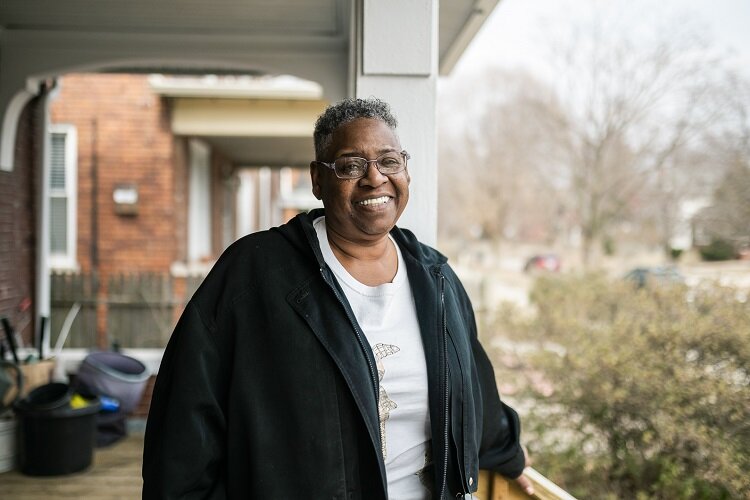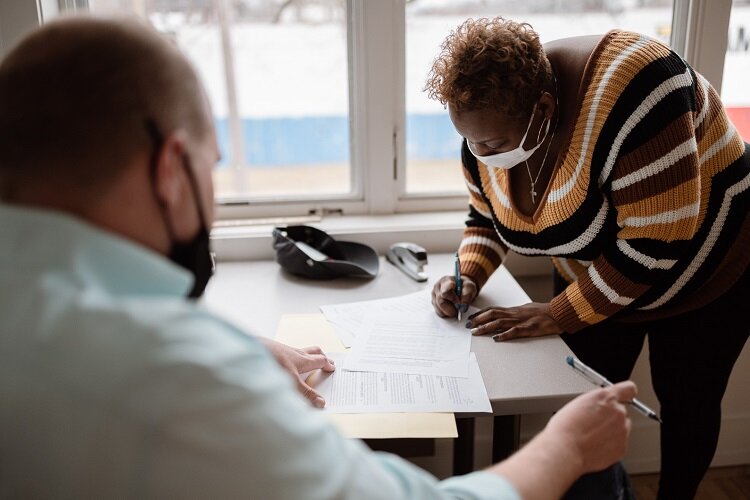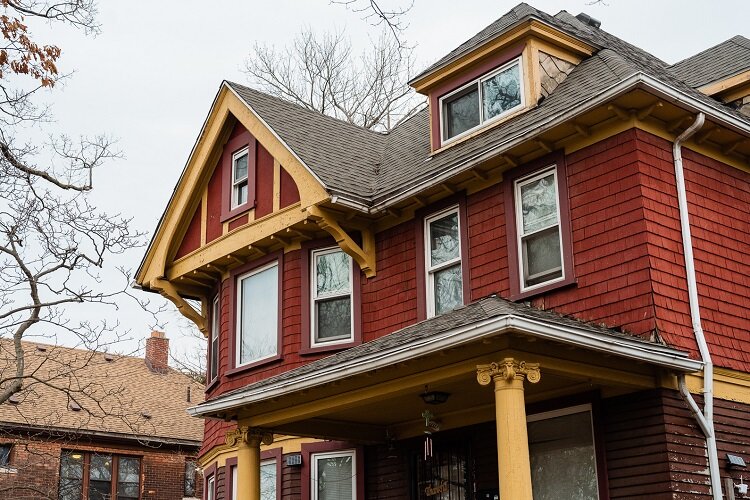Resilient Neighborhoods: How 3 nonprofits are working to keep East Side Detroiters in their homes
An innovative home stabilization program is dedicated to helping long-time Detroiters stay in their neighborhoods.
Daisy Jackson, a community organizer and caregiver who lives in Detroit’s Islandview neighborhood, found something unexpected recently when she ran a title check on her house. Someone had placed a lien on the home, the three-story Foursquare-style residence on Field Street where she’s lived for the last 51 years. Confident that her home has been fully paid for, Jackson suspects the lien may be part of some kind of scam.
“I think it’s fraud, because it doesn’t have the right social security number. And the middle initial is [wrong]. It’s Daisy Jackson, but we have two different middle
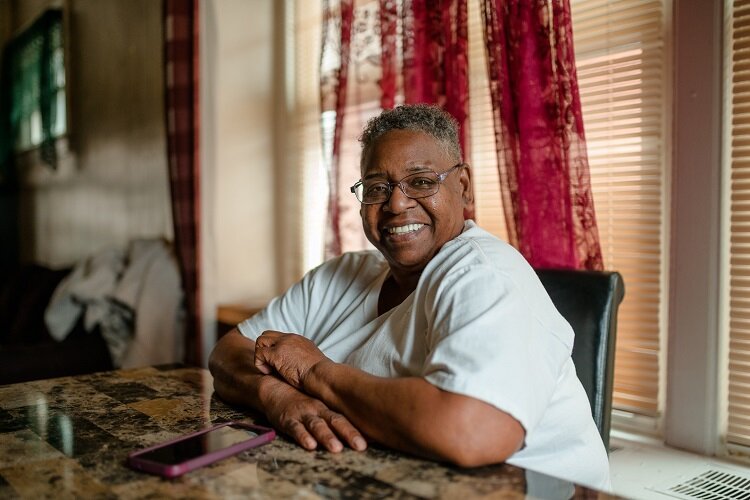
initials.”
Jackson’s discovery is the byproduct of her participating in a home stabilization program focused on helping long-time East Siders remain in their neighborhoods. Still in its pilot phase, it’s a collaboration between three local nonprofits, The Villages CDC, MACC Development and Wayne Metro Community Action Agency.
The home stabilization program provides grants of up to $2,500 per household to qualifying homeowners living on the city’s East Side. And it’s geared towards native Detroiters and senior citizens. These residents get help running a title check on their home, which is deducted from their grant. If they need legal assistance navigating title issues or probate court, that’s also paid for out of their program money. After that, Wayne Metro aids participants in navigating through a range of tax and utility issues that might cause difficulties in retaining the homes.
Then the homeowners get help setting up a will for the properties. Those over the age of 65 getting assistance through a program called Elder Law. Otherwise, legal assistance is provided to help with the drafting of a will. Finally, after those steps are completed and there is enough funding left, up to $2,350 of the grant can be used for minor home repairs.
Jackson, who currently lives with her daughter and granddaughter at their Field Street home, found out about the home stabilization from MACC Development while attending a community meeting. In addition to finding out about the lien on her home, she also took a Zoom class with Elder Law and drew up a will. Through the program, she was also able to pay for the cutting down of a tree that was becoming a nuisance on her property. Right now she’s consulting with lawyers connected to Detroit Eviction Defense and working on getting a Legal Aid attorney to help her resolve the lien on her home.
For Jackson, being involved with the home stabilization program has been a positive experience that’s given her confidence that her home will be able to stay in the possession of her family after she’s gone.
“It’s just a nice program,” she says. “I appreciate them coming to the neighborhood working with the other residents. They are trying to keep us together, because we are a community.”
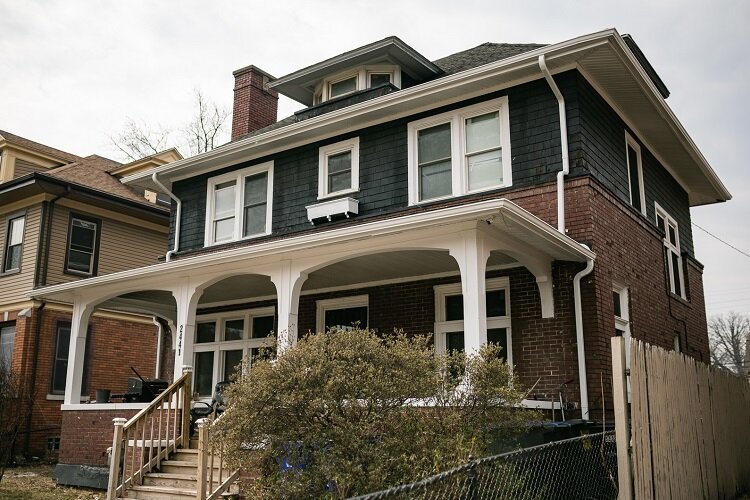
A ‘stepping stone’ for stabilization
The home stabilization program has origins in conversations, dating back a few years, between MACC Development and The Villages CDC about the difficulty long-time East Side residents have had holding onto their homes. The two nonprofits share concerns about the over assessment of property taxes by the city of Detroit that contributed to some Detroiters losing their homes as well as how recent development trends — particularly in Islandview where many view what is happening as gentrification — may be impacting existing residents. Beyond that home repairs have also been a major issue for many East Side homeowners.
“In a lot of circumstances the resources that should be available and should be accessible by residents aren’t,” says Mac Farr, director of the Villages CDC. “What
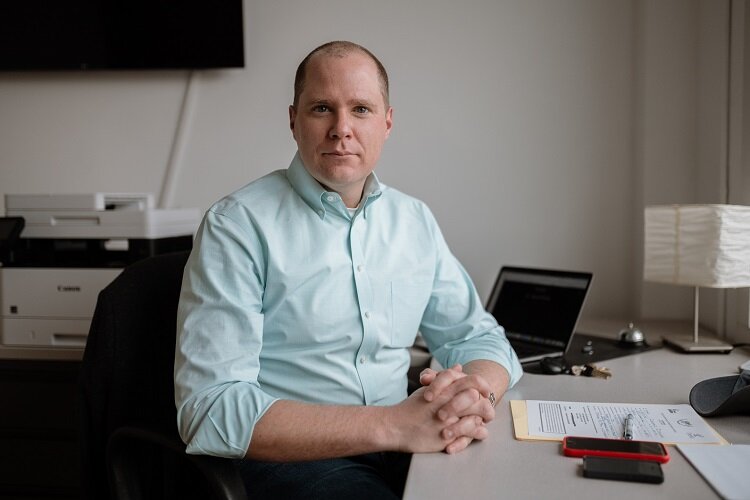
we did was put together a program that would provide sort of a stepping stone for people to be able to apply for other programs.”
Early in the pandemic, MACC Development put together a program called 48214 CARE aimed at connecting neighbors and providing a variety of resources — including emergency home repair grants of up to $500 — to residents in the 48214 Zip Code. Edythe Ford, MACC Development’s Director of Community Engagement, sees the home stabilization program as a related attempt to assist community members in the area.
“We’re partnering and trying to put all the resources that we have available to help our neighbors,” she says. “[We hope it will help] clean up blight in our neighborhoods and encourage people not to move, while also retaining generational wealth for African Americans.”
Preserving homes and legacies
Jennine Spencer, a licensed cosmetologist and community organizer with Church of the Messiah, is also participating in the home stabilization program. The native Detroiter lives in a Victorian Queen Anne home a little down the road from Jackson on Field Street and next door to her childhood home, which is currently unoccupied.
Through the program, she learned that the family that originally owned her home
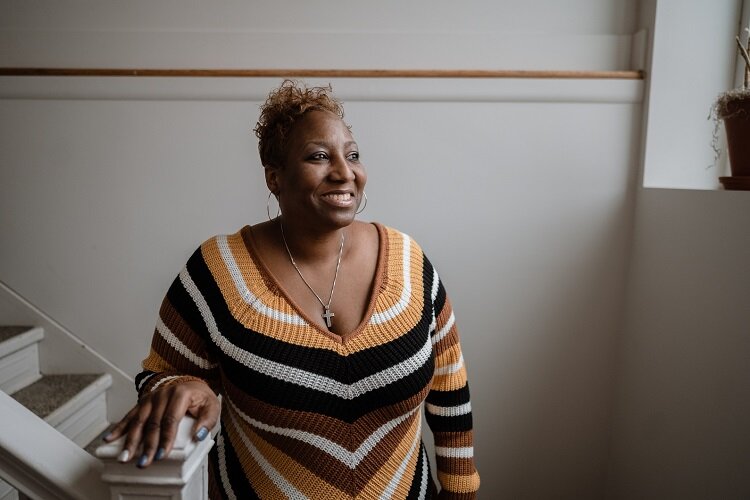
back in 1939. While it’s unlikely that will have any bearing on her ownership of the home, since the former owner passed away more than 20 years ago, the information would be helpful to know if Spencer ever wanted to refinance her home. In addition to that, she’s also drawn up a will and used her grant funds to install gutters on her home and trim a nearby tree.
“It’s given me peace of mind,” she says. “I know that if something happens to me, my children are listed as my beneficiaries for the home. I won’t have to worry about anyone trying to take my legacy from them.”
This is something the Islandview resident knows about first-hand, due to her experience with her family home. Her parents passed away without drawing up a will, so now her family is going through probate court to determine ownership of the home.
Spencer, who has been president of the Field Street Block Club Association for more than 20 years, has also made use of a fund established by her organization as well a grant from the Genesis HOPE community development program to install a new roof on her home. As of March 27, her block club has raised more than $14,000 for the home repair fund to help long-time Islandview residents pay for critical home repairs and heating and electrical appliances. There’s a dire need for these sorts of things in the neighborhood, according to Spencer.
“For years our long-time residents have been on waiting lists or have not been able to access available grants and assistance from the city,” she says. “We need more money and home resources, home repair grants, and energy efficiency grants in this community to help us stay in our homes, so we can survive and live longer healthier lives.
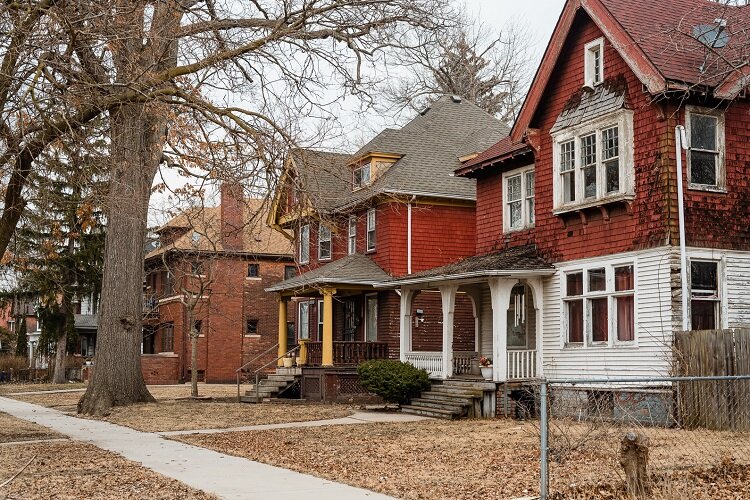
Committing to neighborhoods
Ten East Side residents have been involved in the pilot phase of the home stabilization program, three in East Village, one in North Village and six in Islandview. Of these participants, six have had title issues of varying levels of severity, a fact Farr finds “illuminating” in regards to the realities many homeowners are likely facing on the East Side. And resolving some of the legal issues with the homes is taking longer than expected to a judicial backlog tied to the pandemic.
As for repairs, program organizers have received a $20,000 grant from the
A.A. Van Elslander Foundation to help one of the participants homes ready for a federal weatherization program that will make the residence more energy efficient. That said, Farr realizes that many of the homes have repair needs that could cost hundreds of thousands of dollars, much more than $2,350 from the hobe stabilization grant will be able to resolve.
“We can make gestures in terms of minor to modest repairs and those mostly of a motivational value,” he says. “We really want to give people hope that they’re able to hold on long enough, so they can get themselves positioned financially to take care of the houses themselves.”
Farr hopes that the participants in the pilot will have graduated by the end of spring. He and other program organizers will then be looking back at what they’ve learned and developing a tighter process for the next cohort, which is expected to begin this fall. They will also be reaching out to funders in an effort to build out a more comprehensive program that will make more of an impact for homeowners.
At the end of the day, however, Farr wants residents to know that the program is about much more than individual homes. For him, It’s about letting community members know that the sponsors of the program care about preserving East Side neighborhoods and keeping long-term residents in place.
“A lot of people feel like they’re getting pushed out—and I can’t say that people’s feelings are wrong,” says Farr. “But by taking steps that are proactive and committing real resources to it, hopefully we can begin to cut against that.”
Photos by Steve Koss.
Resilient Neighborhoods is a reporting and engagement series that examines how Detroit residents and community development organizations are working together to strengthen local neighborhoods. It’s made possible with funding from the Kresge Foundation.
